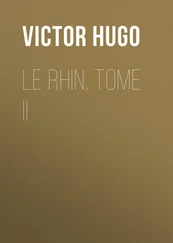Victor Hugo - Ninety-Three
Здесь есть возможность читать онлайн «Victor Hugo - Ninety-Three» — ознакомительный отрывок электронной книги совершенно бесплатно, а после прочтения отрывка купить полную версию. В некоторых случаях можно слушать аудио, скачать через торрент в формате fb2 и присутствует краткое содержание. Жанр: literature_19, foreign_antique, foreign_prose, на английском языке. Описание произведения, (предисловие) а так же отзывы посетителей доступны на портале библиотеки ЛибКат.
- Название:Ninety-Three
- Автор:
- Жанр:
- Год:неизвестен
- ISBN:нет данных
- Рейтинг книги:3 / 5. Голосов: 1
-
Избранное:Добавить в избранное
- Отзывы:
-
Ваша оценка:
- 60
- 1
- 2
- 3
- 4
- 5
Ninety-Three: краткое содержание, описание и аннотация
Предлагаем к чтению аннотацию, описание, краткое содержание или предисловие (зависит от того, что написал сам автор книги «Ninety-Three»). Если вы не нашли необходимую информацию о книге — напишите в комментариях, мы постараемся отыскать её.
Ninety-Three — читать онлайн ознакомительный отрывок
Ниже представлен текст книги, разбитый по страницам. Система сохранения места последней прочитанной страницы, позволяет с удобством читать онлайн бесплатно книгу «Ninety-Three», без необходимости каждый раз заново искать на чём Вы остановились. Поставьте закладку, и сможете в любой момент перейти на страницу, на которой закончили чтение.
Интервал:
Закладка:
"The Vendée has found a leader."
VII
HE WHO SETS SAIL INVESTS IN A LOTTERY
But what was to become of the corvette? The clouds that had mingled all night with the waves had now fallen so low that they overspread the sea like a mantle, and completely shut out the horizon. Nothing but fog, – always a dangerous situation, even for a seaworthy vessel.
A heavy swell was added to the mist.
They had improved their time; the corvette had been lightened by throwing into the sea everything that they had been able to clear away after the havoc caused by the carronade, – dismantled cannons, gun-carriages, twisted or loosened timbers, splintered pieces of wood and iron; the port-holes were opened, and the corpses and parts of human bodies, wrapped in tarpaulin, were slid down on planks into the sea.
The sea was running high. Not that the tempest was imminent. On the other hand, it seemed as if the hurricane, that was rumbling afar off on the horizon, and the wind were both decreasing and moving northward; but the waves were still high, showing an angry sea, and the corvette in its disabled condition could with difficulty resist the shocks, so that the high waves might prove fatal to it. Gacquoil, absorbed in thought, remained at the helm. To show a bold front in the presence of danger is the habit of commanders.
La Vieuville, whose spirits rose in time of trouble, addressed Gacquoil.
"Well, pilot," he said, "the squall has subsided. Its sneezing-fit came to naught. We shall pull through. We shall get some wind, and nothing more."
"We can't have wind without waves."
A true sailor, neither gay nor sad; and his reply was charged with an anxious significance. For a leaking ship a high sea means a rapid sinking. Gacquoil had emphasized this prediction by frowning. Perhaps he thought that after the catastrophe with the cannon and the gunner, La Vieuville had been too quick to use light-hearted, almost cheerful, words. Certain things bring ill-luck at sea. The sea is reticent; one never knows its intentions, and it is well to be on one's guard.
La Vieuville felt obliged to resume his gravity.
"Where are we, pilot?" he asked.
"In the hands of God," replied the pilot.
A pilot is a master; he must always be allowed to do what pleases him, and often to say what he chooses. That kind of man is not apt to be loquacious. La Vieuville left him, after asking a question to which the horizon soon replied.
The sea had suddenly cleared.
The trailing fogs were rent; the dusky heaving waves stretched as far as the eye could penetrate into the dim twilight, and this was the sight that lay before them.
The sky was shut in by clouds, although they no longer touched the water. The dawn had begun to illumine the east, while in the west the setting moon still cast a pale glimmering light These two pallid presences in opposite quarters of the sky outlined the horizon in two narrow bands of light between the dark sea and the gloomy sky. Black silhouettes were sketched against them, upright and motionless.
In the west, against the moonlit sky, three high cliffs stood forth, like Celtic cromlechs.
In the east, against the pale horizon of the morning, eight sails drawn up in a row in formidable array came in view. The three cliffs were a reef, the eight sails a squadron. Behind them was Minquiers, a cliff of ill-repute, and in front were the French cruisers. With an abyss on the left hand, and carnage on the right, they had to choose between shipwreck and a battle. The corvette must either encounter the cliffs with a damaged hull, a shattered rigging, and broken masts, or face a battle, knowing that twenty out of the thirty cannons of which her artillery consisted were disabled, and the best of her gunners dead.
The dawn was still feint, and the night not yet ended. This darkness might possibly last for quite a long time, as it was caused mostly by the clouds that hung high in the air, thick and dense, looking like a solid vault.
The wind had scattered the sea-fog, driving the corvette on Minquiers.
In her extreme weakness, and dilapidated as she was, she hardly obeyed the helm as she rolled helplessly along, lashed onward by the force of the waves.
The Minquiers – that tragic reef! – was more dangerous at that time than it is now. Several of the turrets of this marine fortress have been worn away by the incessant action of the sea. The form of reefs changes; waves are fitly likened unto swords; each tide is like the stroke of a saw. At that time, to be stranded on the Minquiers meant certain death. The cruisers composed the squadron of Cancale, – the one that afterwards became so famous under the command of Captain Duchesne, called by Lequinio "Père Duchesne."
The situation was critical. During the struggle with the carronade the ship had wandered unconsciously from her course, sailing more in the direction of Granville than of St. Malo. Even had her sailing power been unimpaired, the Minquiers would have barred her return to Jersey, while the cruisers hindered her passage towards France. Although there was no storm, yet, as the pilot had said, the sea was rough. Rolled by the heavy wind over a rocky bottom, it had grown savage.
The sea never tells what it wants at the first onset. Everything lies concealed in its abyss, even trickery. One might almost affirm that it has a scheme. It advances and recedes; it offers and refuses; it arranges for a storm, and suddenly gives up its intention; it promises an abyss, and fails to keep its agreement; it threatens the north, and strikes the south. All night long the corvette "Claymore" labored with the fog and feared the storm; the sea had disappointed them in a savage sort of way. It had drawn a storm in outline, and filled in the picture with a reef.
It was to be a shipwreck in any event, but it had assumed another form, and with one enemy to supplement the work of the other, it was to combine a wreck on the surf with destruction by battle.
"A shipwreck on the one hand and a fight on the other!" exclaimed Vieuville amid his gallant laughter. "We have thrown double fives on both sides!"
VIII
9: 380
The corvette was little better than a wreck.
A sepulchral solemnity pervaded the dim twilight, the darkness of the clouds, the confused changes of the horizon, and the mysterious sullenness of the waves. There was no sound except the hostile blasts of the wind. The catastrophe rose majestic from the abyss. It looked more like an apparition than an attack. No stir on the rocks, no stir on the ships. The silence was overpowering beyond description. Were they dealing with reality? It was like a dream passing over the sea. There are legends that tell of such visions. The corvette lay, so to speak, between a demon reef and a phantom fleet.
Count Boisberthelot in a low voice gave orders to La Vieuville, who went down to the gun-deck, while the captain, seizing his telescope, stationed himself behind the pilot. Gacquoil's sole effort was to keep up the corvette to the wind; for if struck on her side by the sea and the wind, she would inevitably capsize.
"Pilot, where are we?" said the captain.
"On the Minquiers."
"On which side?"
"On the worst one."
"What kind of bottom?"
"Small rocks."
"Can we turn broadside on?"
"We can always die."
The captain turned his spy-glass towards the west and examined the Minquiers; then turning it to the east he watched the sails that were in sight.
The pilot went on, as though speaking to himself:
"Yonder is the Minquiers. That is where the laughing sea-mew and the great black-hooded gull stop to rest when they migrate from Holland."
Meanwhile the captain had counted the sails.
There were, indeed, eight ships drawn up in line, their warlike profiles rising above the water. In the centre was seen the stately outline of a three-decker.
Читать дальшеИнтервал:
Закладка:
Похожие книги на «Ninety-Three»
Представляем Вашему вниманию похожие книги на «Ninety-Three» списком для выбора. Мы отобрали схожую по названию и смыслу литературу в надежде предоставить читателям больше вариантов отыскать новые, интересные, ещё непрочитанные произведения.
Обсуждение, отзывы о книге «Ninety-Three» и просто собственные мнения читателей. Оставьте ваши комментарии, напишите, что Вы думаете о произведении, его смысле или главных героях. Укажите что конкретно понравилось, а что нет, и почему Вы так считаете.












